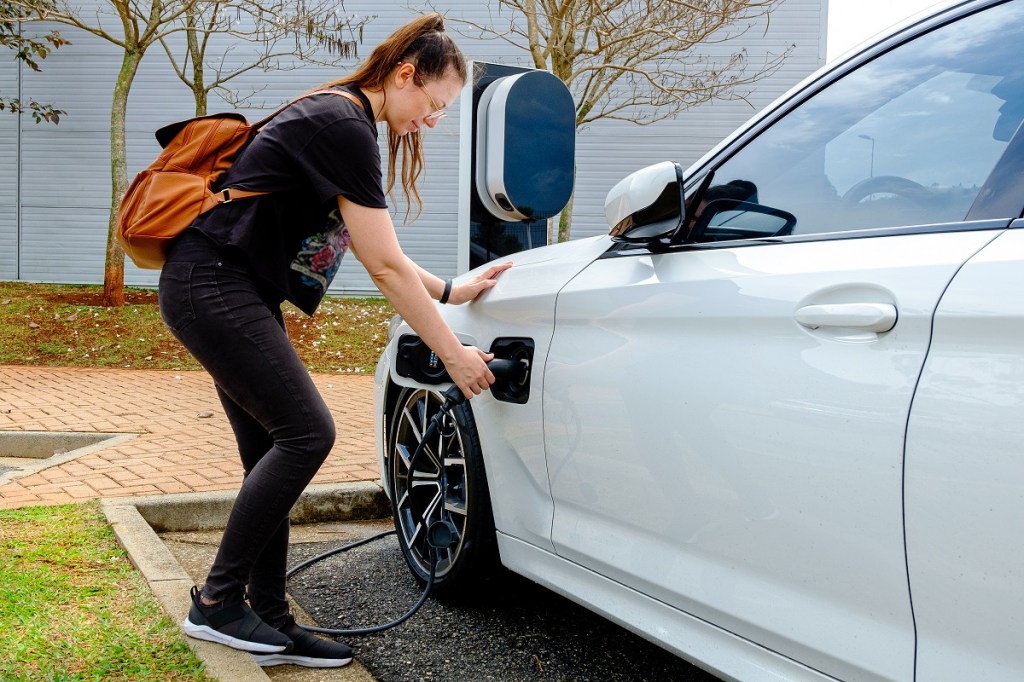Price is one of the key consumer concerns around the adoption of EVs in Australia, including both vehicle and charging costs.
At the Energy Hub Forum by the Warren Centre at the University of Sydney, experts discussed Australia’s capacity to deliver the benefits of electrified transport.
Angeles Miranda, Head of e-Mobility at Ampol Australia, said that through research with the Australasian Fleet Management Association (AfMA) they identified three top concerns surrounding EV adoption.
“The top three concerns are about the purchase cost of EVs, the limitations of those options, meaning that we only have a few models available, and the cost of EV charging infrastructure for the workplace.”
Ampol’s research shows that in 2025 the location of choice for charging will be 82 per cent at home, 11 per cent preferencing at work, and the remainder using public infrastructure.
“It is important we speak about the investment in the workplace, as when the location of choice [to charge their EVs] for passengers is at home, around 45 per cent of Australian drivers don’t have a garage so it’s tricky, hence we believe that the public infrastructure will play a key role as well.”
Josef Tadich, Regional Manager and Senior Manager of Engineering and Construction at Tesla, also believes costs are probably the biggest prohibitor in the Australian market and outlined some ways to navigate that barrier.
“Some of the mechanisms would be to put a fringe benefits tax (FBT) on EVs, encouraging government fleet buys which would stimulate and prime the second-hand vehicle market so it’s more accessible for people to buy that vehicle.
“Another would be to increase public chargers, particularly for people who are renters and the people who live in apartment buildings. We’ve seen that in China and Hong Kong, for example, that 95 per cent of vehicles are apartment based and use public chargers and that infrastructure needs a strong policy behind it.”
Professor John Nelson, Chair in Public Transport at the Institute of Transport and Logistics Studies at the University of Sydney, said the overall cost is something that people, whether consumers or businesses, will be asking.
“We need some really strong leadership from the government because the decarbonisation agenda isn’t going to move forward without and incentives and nudges.”
Nelson said that looking at European models, some people believed that by purchasing an EV they may be entitled to pass through a congestion charge without any charge, but that is different in Australia with road user charges.
“In Australia an EV is still congestion, and a vehicle that is polluting, taking into account upstream emissions, so therefore it’s not unreasonable that an EV should be charged for road space as well. So, I think looking at the operation and deployment of EVs going forward is incredibly important as well.”


Some logical considerations and questions:
Are we looking at buying the cart without a horse here?
should we be concentrating all our efforts on our infrastructure first and how electricity is produced?
have any of you visited the lithium battery production plants in China? i have and everything around these plants for 20klm is dead or dying.
are we going to clean the air but poison the earth with toxic waste from used lithium batteries?
havent we leap froged here? Should the current stage of emission reduction be focusing on the Hyrid vehicles rather than full electric?. Toyota has got this right for the last 20 years.
we are not yet ready with technology to go full electric! isn’t 57% of the worlds lithium coming from 1 mind in WA? Cost of lithium has gone up 500% in 12 months. how much will it cost in 3 years??
alternatives must be considered here and technology will get us there. already emission form vehicle have been reduced over the past 7 years significantly. there will be better alternatives as technology improves and it is improving at a rapid rate.
what about nuclear as part of our electricity producing infrastructure??? this is actually the cleanest alternative of all and Australia is one of the safest counties to take this on.
alternatively, Hydro can be used in tidal areas or via the building of more dams? are we so blind that we don’t see and study logical realities? is Elon Musk the best conman on earth?
we can go on for ever about whys and why nots, the fact is that full electric cars are not actually the answer at all.
infrastructure, world wide must come first. Good luck with that in China…..and even India.
one last thing…… Should we be planting more natural trees and expanding all the forests in the world, that we have reduced in size over time by more than 94 %, ?? isn’t the most logical solution to Climate change more forests and trees????? and possibly the easiest of all? unless we change our habits to prioritize our natural forest expansion, no technologies will make a big enough difference to the future of humanity and clean living.